10 finalists in IP Paris "My thesis in 180 seconds" competition 2025
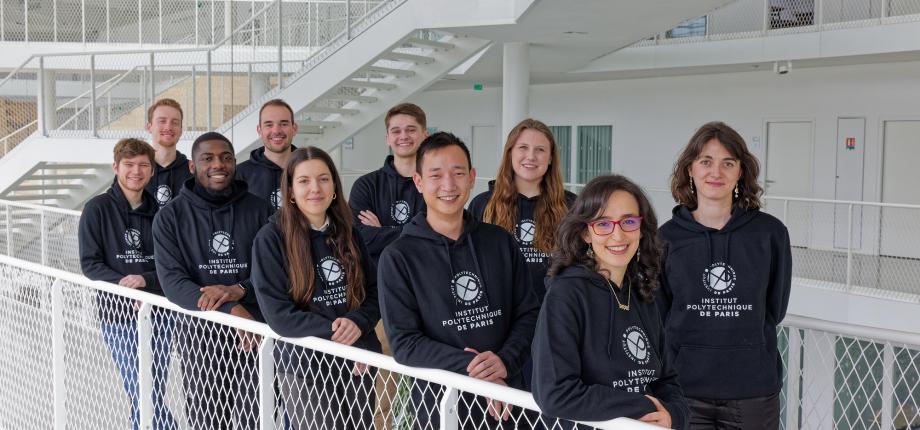
The local final of the MT180 2025 competition will take place on Wednesday April 2, 2025 at the École Polytechnique from 6:30 to 8:30 pm. Ten finalists have been pre-selected this year, so come and cheer them on and vote for the one who convinces you most !
The scientific mediation show is free and open to the public, but you must register by filling in the form.
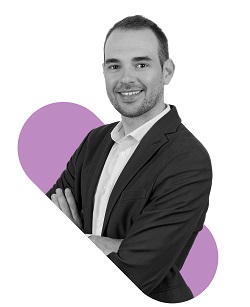 | Xavier Xancho is writing his thesis at the Organic Synthesis Laboratory (LSO - a joint research unit, CNRS, ENSTA, École Polytechnique, Institut Polytechnique de Paris, 91120 Palaiseau, France). His thesis is entitled Asymmetric catalytic cycloadditions of nitrogen dipoles: new reagents for a complementary approach. What does your thesis involve?I'm a chemist, and my work consists in making molecules “dance” to assemble them and create new structures. Thanks to a precious ally, palladium - my “Cupid” - I organize the meeting of these molecules so that they attract each other and form rings containing a nitrogen atom. These structures are essential, as over 50% of all drugs contain them! But the orientation of the bonds in space is crucial: some orientations could be toxic, while others could be beneficial to the body. So my role is to orchestrate this molecular dance, controlling every parameter (choice of partners, temperature, and other operating conditions...) so as to selectively control these orientations. All this to contribute to the manufacture of safer, more effective drugs. Thanks to this precision chemistry, my research could pave the way for new treatments for a variety of diseases. What motivated you to embark on a doctoral thesis in this field?Chemistry has fascinated me ever since I was a child. I began by marvelling at the changes in color of solutions, before diving deeper into understanding the interactions between molecules. I'm fascinated by deciphering the mechanisms that govern the formation of chemical bonds: why does a bond form here rather than elsewhere? Why does it adopt a specific orientation? These questions naturally led me to research. Today, the idea that my work could contribute to the development of therapeutic molecules motivates me every day. Participating, in my own small way, in the improvement of health is a mission that's close to my heart. Why is it important for you to popularize your work and present it to the general public?Popularizing my work means, above all, sharing my passion. I love transmitting, explaining and observing the wonder in the eyes of those who discover a subject they thought inaccessible. Chemistry may seem complex, but with the right words and images, it becomes fascinating! I like to show that this discipline, beyond formulas and reactions, is a living science, creative and essential to our daily lives. By making my research accessible, I also hope to give a more positive image to my field, often perceived as abstract or dangerous. And explaining also means inspiring: perhaps among those who listen to me are the scientists of tomorrow. What does the MT180 competition mean to you, and what do you hope to gain from the experience?Taking part in MT180 is an opportunity. Being able to explain my subject to my friends and family, and seeing their interest grow, is a great satisfaction. I've been following this competition for years, admiring the passion and clarity of the participants. Today, it's an honor to be on stage too. It's also a unique opportunity to perfect my public speaking skills, and gain in ease and confidence. Valuable skills that will serve me well throughout my career as a chemical researcher.
|
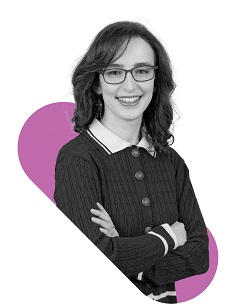 | Sarah Tachet is doing her thesis at the Laboratory of Mechanics and Interfaces (LMI - a joint research unit ENSTA, Institut Polytechnique Paris, 91120 Palaiseau, France). Her thesis is entitled Building models for wave propagation through resonant metasurfaces/metafilms. What does your thesis involve?In recent years, physicists have discovered that by periodically integrating small empty bottles into a wall, it is possible to achieve perfect sound insulation. Here, the bottles are similar to Helmholtz resonators, a device used to study the resonance of air and, in acoustics, to attenuate certain frequencies. By using them in this way, scientists have formed a metamaterial (an artificial composite material whose physical properties are not found in any other natural material) with the particularity of effectively transforming the sound waves that interact with the wall. My thesis proposes to formulate mathematical models capable of effectively describing this wave-structure interaction. The aim? Better understand it, optimize it and, ultimately, control it. Then it will be time to say goodbye to neighborhood problems. What motivated you to embark on a doctoral thesis in this field?Translating a real-life problem into mathematical equations is, I think, what makes me happiest in the world. I arrived from Algeria in 2018 for an engineering / Master's course in mathematical methods for mechanics with the idea of going as far as possible. The doctoral adventure was therefore an obvious next step after my engineering and Master's degrees. In fact, the university adventure continues for me with the start of a post-doctorate contract next fall! Why is it important for you to popularize your work and present it to the general public?There's a saying that if you can't explain an idea simply, you don't understand it well enough. Popularizing your work is therefore an excellent way of taking stock of your own understanding of your thesis subject. It's also a great opportunity to share knowledge, especially with younger people, for whom our career paths can inspire vocations. What does the MT180 competition mean to you and what do you hope to gain from the experience?For me, the MT 180 competition is above all about having fun, meeting new people and sharing knowledge and values. |
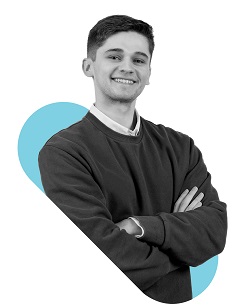 | Louis Berthier is writing his thesis at the Center for Applied Mathematics (CMAP - a joint research unit CNRS, Inria, École Polytechnique, Institut Polytechnique de Paris; 91120 Palaiseau, France). His thesis is entitled Quality Related Process Control for Tyre Manufacturing based on Latent Space Exploration. What does your thesis involve?In the manufacturing, pharmaceutical and chemical industries, estimating product quality in real time is a major challenge. My work takes up this challenge and proposes new robust and reliable artificial intelligence methods - more specifically, deep learning - to estimate this quality. At Michelin, where I'm doing my thesis, the rubber used in tires is sampled from time to time and then tested in the laboratory using long and costly tests. My aim is therefore to develop a tool to accurately monitor rubber quality during production. The aim is also to improve decision support, using innovative uncertainty quantification techniques. Ultimately, this will enable real-time production control to be adjusted - faster, more precise, more reliable - and samples to be intelligently selected for laboratory testing. What motivated you to embark on a doctoral thesis in this field?Right from the start of my higher education, I chose to study computer science, more specifically artificial intelligence - machine and deep learning - and I've always had a keen interest in research. I've also been lucky enough to work on some exciting projects in robotics and neuroscience, bridging the gap between research and practical applications. This CIFRE thesis, in collaboration with Michelin and CMAP, corresponds exactly to my profile and interests. It also enables me to gain experience in industry while participating in research, to deepen my knowledge, and to prepare myself to take on new challenges in both environments. Why is it important for you to popularize your work and present it to the general public?Research shouldn't be confined to the laboratory. In my opinion, it should be shared with everyone. Popularizing my work is both a personal challenge in terms of communicating with different audiences, and an opportunity to make cutting-edge topics more accessible. It helps to show how these technologies respond to societal or industrial challenges, while deconstructing clichés about research and researchers. I also see parallels with the world of startups and pitching: convincing and conveying a vision are valuable skills, whatever the sector. What does the MT180 competition mean to you, and what do you hope to gain from the experience?MT180 is a unique adventure. By sharing my research work with a wider audience, I hope to inspire future researchers and show that research is useful and accessible to all. In fact, taking part in this competition is also a way of breaking down social barriers and encouraging a diversity of profiles and talents. |
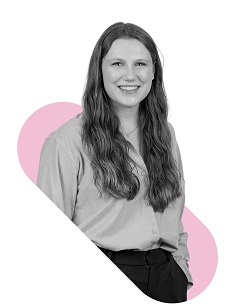 | Amélie Kies is doing her thesis at the Applied Optics Laboratory (LOA - a joint research unit, CNRS, École Polytechnique, ENSTA, Institut Polytechnique de Paris, 91120 Palaiseau, France). Her thesis is entitled Ultrafast dynamics in diamond NV centers subjected to a magnetic field. What does your thesis involve?As part of my thesis, I'm looking to detect very weak magnetic fields, such as those emitted by cancer cells. To do this, I'm using a slightly violet diamond, capable of emitting flashes that are spaced out over time as the surrounding magnetic field increases. However, the light emitted by the diamond is too weak and its variation too slow to follow precisely. My job is to intensify and sharpen it by studying its emission mechanism. The latter is governed by electron displacements in the diamond, which occur on ultra-short time scales. Thanks to an ultra-fast laser, I can follow and act on the movement of these particles, enabling me to identify the parameters to be adjusted (such as those of the laser) in order to intensify and refine the light emitted. At the same time, I'm deepening this research with theoretical studies on diamond to better understand and control the movement of electrons. What motivated you to embark on a doctoral thesis in this field?It all started in high school, following a presentation on quantum physics. The field was a revelation to me, and I knew I wanted to make a career out of it. Without knowing where to start, or what opportunities might be open to me, I groped around until I applied for an internship in the only laboratory I knew in the field. This first experience was a success, and I immediately accepted the thesis that was offered to me. Why is it important for you to popularize your work and present it to the general public?Popularizing my work is important to me because, when I was younger, it's what allowed me to dream about the fascinating scientific stories I followed on social networks during MT180 competitions or TED Talks. What does the MT180 competition mean to you, and what do you hope to gain from the experience?This competition is an opportunity for me to learn how to popularize my subject, so that my thesis seems less obscure and abstract, especially for those close to me. It's also about generating more interest rather than the fear of not understanding it. It's also an opportunity to show that the thesis is an accessible exercise that can be summed up in concepts understood by everyone. |
 | Alexandre Tan-Lhernould is a member of the Lifeware project-team - INRIA / École Polytechnique. His thesis is entitled Inference of biological models from temporal data for drug discovery. What does your thesis involve?My thesis combines artificial intelligence and systems biology. I'm developing a numerical machine learning model capable of learning gene regulation networks for drug discovery. Let me explain. Genes are pieces of DNA that code for molecules (RNA) which in turn serve as patterns for the production of proteins. The amount of RNA and protein produced by these genes is an indicator of their activity, which can be regulated by the activity of another gene (hence the notion of a gene regulatory network). My job is to analyze the variation in RNA quantity over time in order to reconstruct gene regulatory networks. To do this, I use a numerical learning method called a search tree, which identifies, one after the other, the relationships between genes. It then identifies a gene regulatory network and uses the learned network to simulate the activity of these genes. By comparing the simulated data with the observed data, I verify its relevance. The network can then be tested under various conditions to identify therapeutic targets. What motivated you to embark on a doctoral thesis in this field?Modeling cells, organs and tissues... Simulating living systems to better understand how they function... Bringing new perspectives to medical research... Systems biology fascinates me and that's what led me down this path. What's more, my thesis is an opportunity to study various ways of capitalizing on the ever-increasing quantity and accessibility of biological data. Why is it important for you to popularize your work and present it to the general public?In my opinion, popularizing scientific work is essential. By making their subject more intelligible and accessible, researchers make it easier for the general public, as well as other scientists and students, to understand and appropriate their concepts. This is essential if their work is to be reused and pursued by others, in both basic and applied research. What does the MT180 competition mean to you, and what do you hope to gain from the experience?The competition is an opportunity to communicate on my thesis subject, but more broadly, to give visibility to the world of research. Thanks to it, I hope to develop my communication skills on scientific subjects, which are often complex and difficult to popularize. |
 | Ange Bernardin Chambissie Kameni is writing his thesis at the Institut Photovoltaïque d'Île-de-France (IPVF - a joint reasearch unit CNRS, ENSCP, École Polytechnique, Institut Polytechnique de Paris, 91120 Palaiseau, France). His thesis is entitled Study of new types of perovskite semiconductors by optical and photothermal spectroscopy. What does your thesis involve?In the context of the energy transition, photovoltaics is the most viable renewable energy source for producing electricity while limiting carbon emissions. Materials based on perovskite crystals are very promising, thanks to their high conversion efficiency and low energy consumption. However, they contain lead, which means their toxicity limits their large-scale deployment. At the interface of physics and chemistry, my thesis enabled me to synthesize a new family of perovskite materials in which gold atoms replace lead. I then analyzed the physical properties of this family of materials to determine their potential for inclusion in photovoltaic devices. To do this, I'm using innovative synthesis techniques as well as optical spectroscopy to study the behavior of the electrons responsible for electricity generation. I'll then know whether these new materials are efficient for photovoltaic applications. What motivated you to embark on a doctoral thesis in this field?I come from a country where access to electricity is a luxury for many people, and I've always been keen to help solve this problem. Having had the opportunity to pursue my studies in France, I chose a field that enables me to better understand the phenomena of light-matter interactions, to develop cutting-edge expertise and to be useful to my community while advancing science. Why is it important for you to popularize your work and present it to the general public?I often meet people with preconceived ideas about scientists. They are seen as individuals working in their own bubble on abstract things. Popularizing my work for the general public is an opportunity to show that researchers are dedicated to subjects of general interest and contribute every day to advancing science, but also to improving the lives of all. What does the MT180 competition mean to you, and what do you hope to gain from the experience?For me, MT 180 is an opportunity to talk about my thesis work, share my passion and make science accessible to everyone. I'm a fan of science popularization and I've always been keen to talk about science to those around me. This competition is the perfect opportunity for me to take action with a varied public. |
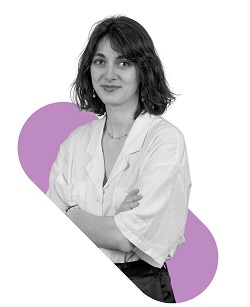 | Laure Corazza is writing her thesis at the Dynamic Meteorology Laboratory (LMD - a joint research unit CNRS, ENS-PSL, Sorbonne Université, École polytechnique, Institut Polytechnique de Paris, 91120 Palaiseau, France). Her thesis is entitled Estimation of greenhouse gas concentration from space using Machine Learning. What does your thesis involve?My thesis is being carried out in the context of the launches of two new greenhouse gas (GHG) observation satellites, based on the analysis of solar radiation that has passed through our atmosphere. Thanks to a technique known as spectroscopy, it is possible to break down these rays and, using a slow mathematical method - measurement inversion - determine the quantity of GHGs in the atmosphere at different locations around the globe. However, unlike their predecessors, these two satellites take continuous readings and generate a considerable amount of data that measurement inversion can no longer process within a reasonable timeframe. The aim of my thesis is therefore to use artificial intelligence to speed up the process and improve GHG determination. To this end, I'm training an artificial neural network which, once developed, can be applied directly to actual measurements taken by the new satellites to determine the GHG concentration at a given point and time. What motivated you to embark on a doctoral thesis in this field?First of all, the pleasure I had in completing my Master's thesis on remote sensing of snow from space. Then, my desire to participate in the scientific effort surrounding the understanding of the effects of global warming and their mitigation. What's more, I wanted to pursue a career in remote sensing because I liked the independence and exploratory possibilities offered by research, while ideally blending space (my field of study) and climate change. Why is it important for you to popularize your work and present it to the general public?I think most people imagine that PhD subjects are extremely complicated and inaccessible to the general public. This creates a kind of mysterious aura around scientific research, when in reality it's concerned with universal themes such as climate change or cancer. Popularization dispels this aura and can help more people become interested in science. What does the MT180 competition mean to you, and what do you hope to gain from the experience?To get out of my comfort zone! The most exciting part of the contest for me is the fact that I'm addressing a large audience, alone on a stage. It's an experience I've never really had before. I hope it will give me more confidence in my ability to speak in front of an audience and keep them interested. |
|---|
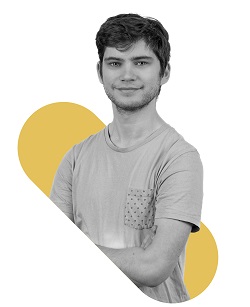 | Tristan Némoz is writing his thesis at the Information Processing and Communications Laboratory (LTCI - a joint research unit Télécom Paris, Institut Polytechnique de Paris, 91120 Palaiseau, France). His thesis is entitled Computational models in quantum cryptography. What is your thesis about?In the near future, quantum computers could break some of today's security devices. The time has come to replace vulnerable systems. We have two historically competing solutions for this. On the one hand, changing encryption algorithms has the advantage of being quick and easy to do, but also exposes us to other potential attacks. On the other, the paradigm shift to quantum physics. In the latter case, security is perfect, but far more difficult to implement. My thesis attempts to reconcile these two solutions by combining traditional encryption algorithms and quantum physics. The aim is to achieve better security than encryption algorithms alone, and better practicality than quantum cryptography alone. What motivated you to embark on a doctoral thesis in this field?Quite simply my career plans. I want to work in quantum computing research, and this thesis is the best way for me to learn about the field. Why is it important for you to popularize your work and present it to the general public?First and foremost, because the subject is fascinating! It's also a way of demystifying quantum physics. And even if I don't have the time to go into this subject in depth in my speech, the general public will be able to discover some of the current problems in cryptography and the different approaches that are competing against each other. What does the MT180 competition mean to you, and what do you hope to gain from the experience?For me, it's an opportunity to learn how to popularize my thesis, and to take the time to think about the most effective way of conveying my information. At the end of the competition, I'll be able to formulate meaningful analogies, adapting them to the person I'm talking to. |
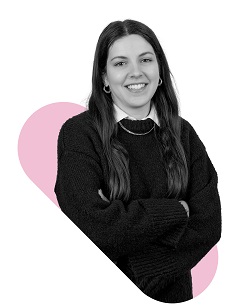 | Marie-Sophie Dias Fernandes is completing her thesis at the Molecular Chemestry Laboratory (LCM - a joint research unit CNRS, École Polytechnique, Institut Polytechnique de Paris, 91120 Palaiseau, France). Her thesis is entitled Study of the electrocatalytic properties of porous heterofunctional materials using electrochemistry and X-ray absorption spectroscopy. What does your thesis involve?My thesis project involves studying new systems for energy storage, particularly for renewable energies. Their development is currently limited due to the intermittency of their production. One way of overcoming this problem is to use devices to store surplus energy and then release it during periods of low production. To this end, I'm interested in systems known as electrolyzers, capable of converting electricity into hydrogen in a clean, cost-effective process. However, the conversion reaction is slow and therefore not efficient enough. The aim of my thesis is to study and optimize new materials to improve the efficiency of the conversion reaction. What motivated you to embark on a doctoral thesis in this field?Practice makes perfect! It was after several internships in laboratories that I developed a taste for research, and the thesis was the logical next step. What's more, my aim was - and still is - to contribute to the fight against the current climate crisis, in particular by participating in the development of new technologies for the production, conversion and storage of energy. Why is it important for you to popularize your work and present it to the general public?It's often difficult to explain our work in a concise way to those close to us, and it's sometimes a little frustrating not to be able to make ourselves understood. This is all the more true when the project is fascinating and the desire to share it and explain its benefits is strong. In such cases, popularization takes on its full importance. What does the MT180 competition mean to you, and what do you hope to gain from the experience?MT180 is a personal challenge. It's a unique experience that gives me the opportunity to talk about my work in a light-hearted way to an audience I'm not used to. It's also an opportunity to present my thesis project from a different angle. Through this experience, I hope to learn how to adapt to my audience and capture their attention. In this way, I hope to convey to the audience the interest and purpose of my thesis project, but above all to have fun doing it. |
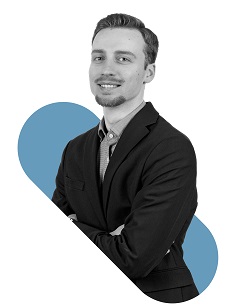 | Maxime Vigoureux is writing his thesis at the Organic Synthesis Laboratory (LSO - a joint research unit CNRS, ENSTA, École Polytechnique, Institut Polytechnique de Paris, 91120 Palaiseau, France). His thesis is entitled When atom economy and step economy merge: fragment and radical cyclization approaches to the total synthesis of bridged natural substances. What does your thesis involve?My thesis is in organic chemistry. I'm developing natural molecules with anti-cancer properties, with the aim of finding a simpler, more efficient and cleaner way of making them. To achieve this, I use a fragment-based approach. In concrete terms, instead of starting with a small natural molecule and modifying it step by step, which is time-consuming and risky, I select several small molecules (also found in nature), modify them and then assemble them. The advantage? Exploiting nature's ingenuity instead of rebuilding everything, but above all, avoiding waste. Indeed, if a step fails, the major part of the molecule is preserved and only the erroneous part is corrected. I then generate free electrons which, like dominoes, trigger a cascade of reactions that I control. In a single step, they transform my molecule fragments into a much larger and more complex one. The result: a faster, more effective strategy for producing future cancer drugs! What motivated you to embark on a doctoral thesis in this field?I've always been fascinated by the medical world: understanding the workings of a disease and how drugs work to combat it. When I discovered organic chemistry, I was immediately hooked! Thinking through reactions and experimenting with them in the lab was both stimulating and practical. Today, I'm convinced that organic chemistry plays a key role in meeting these challenges and driving research forward. Why is it important for you to popularize your work and present it to the general public?Science is often misunderstood, seen as something distant, even too complex. By popularizing my work, I hope to enable everyone to understand the impact of research on the world around us, to make it accessible, and thus inspire vocations and dreams. Organic chemistry is a game I'm lucky enough to be able to play. Anyone can learn the rules and come and shake them up. What does the MT180 competition mean to you, and what do you hope to gain from the experience?MT180 is the perfect opportunity to learn how to share my passion with everyone. The competition pushes me to explain my research clearly and forcefully in record time, which is essential for a researcher. I see it as a great opportunity to improve my way of communicating, to see my thesis in a different light and, who knows, to arouse vocations. |
The contestants' performances will be decided by a public vote, as well as by the vote of a jury made up of passionate personalities from the worlds of science and the arts. Discover the jury's composition in our news item dedicated to the final of the 2025 competition.













